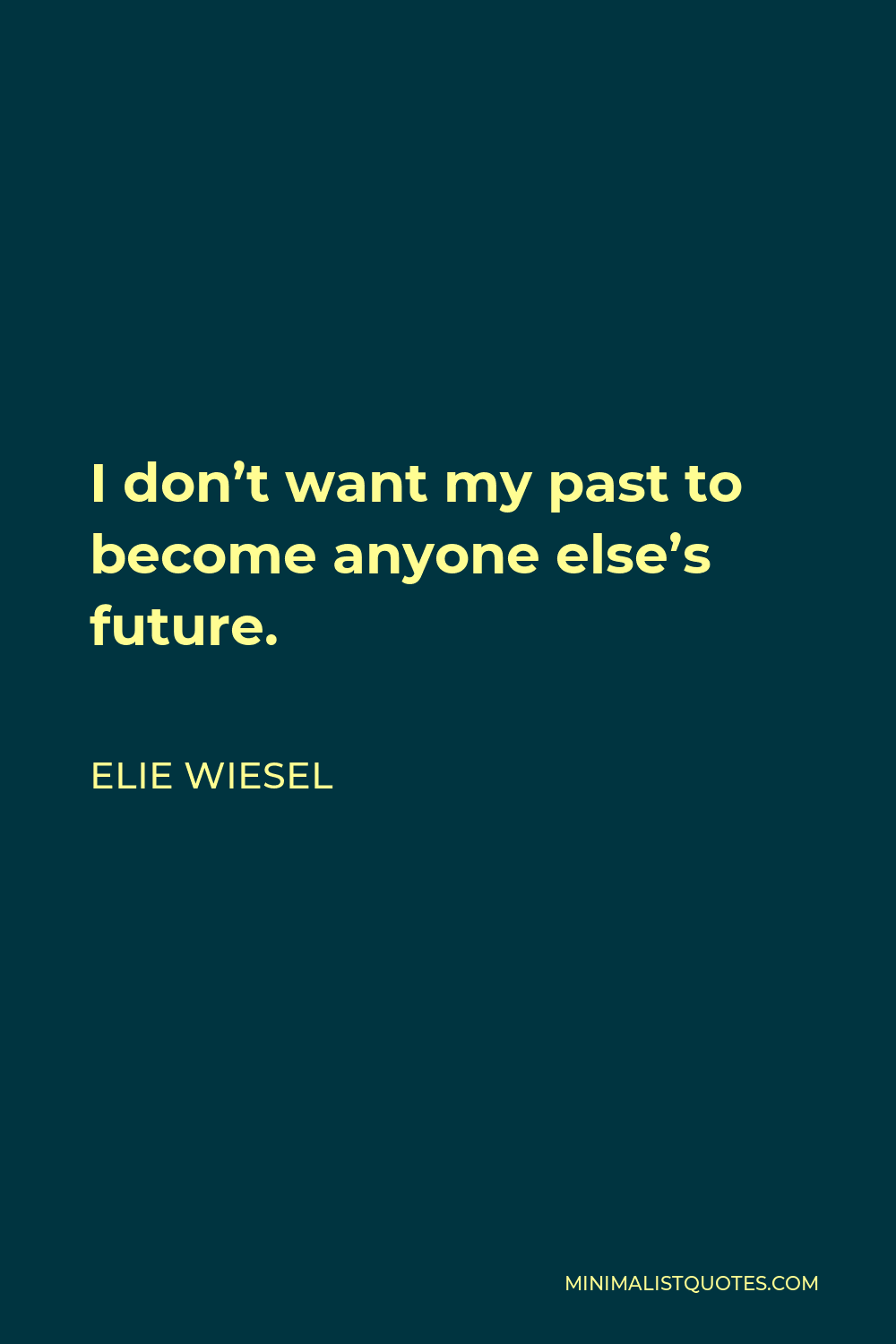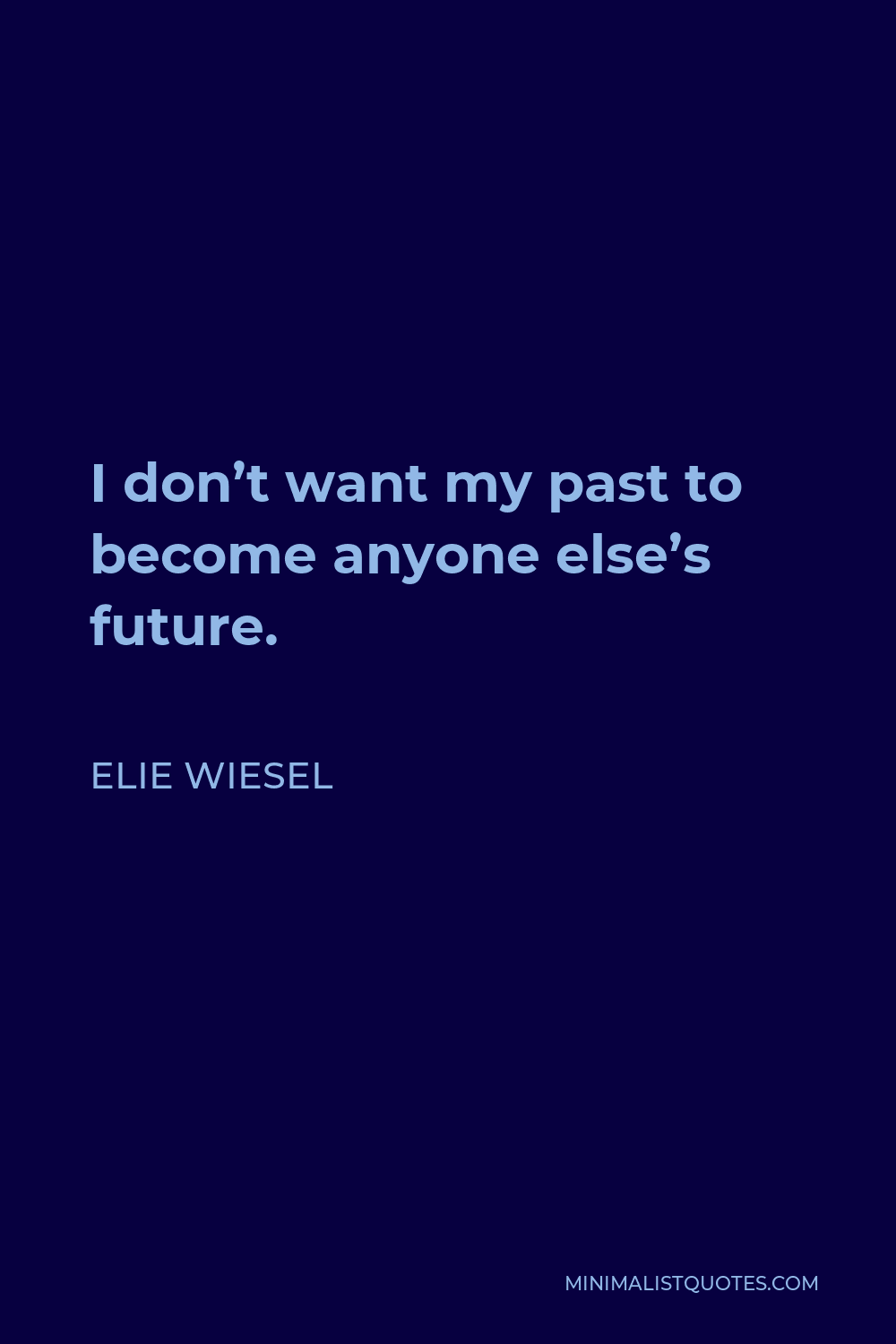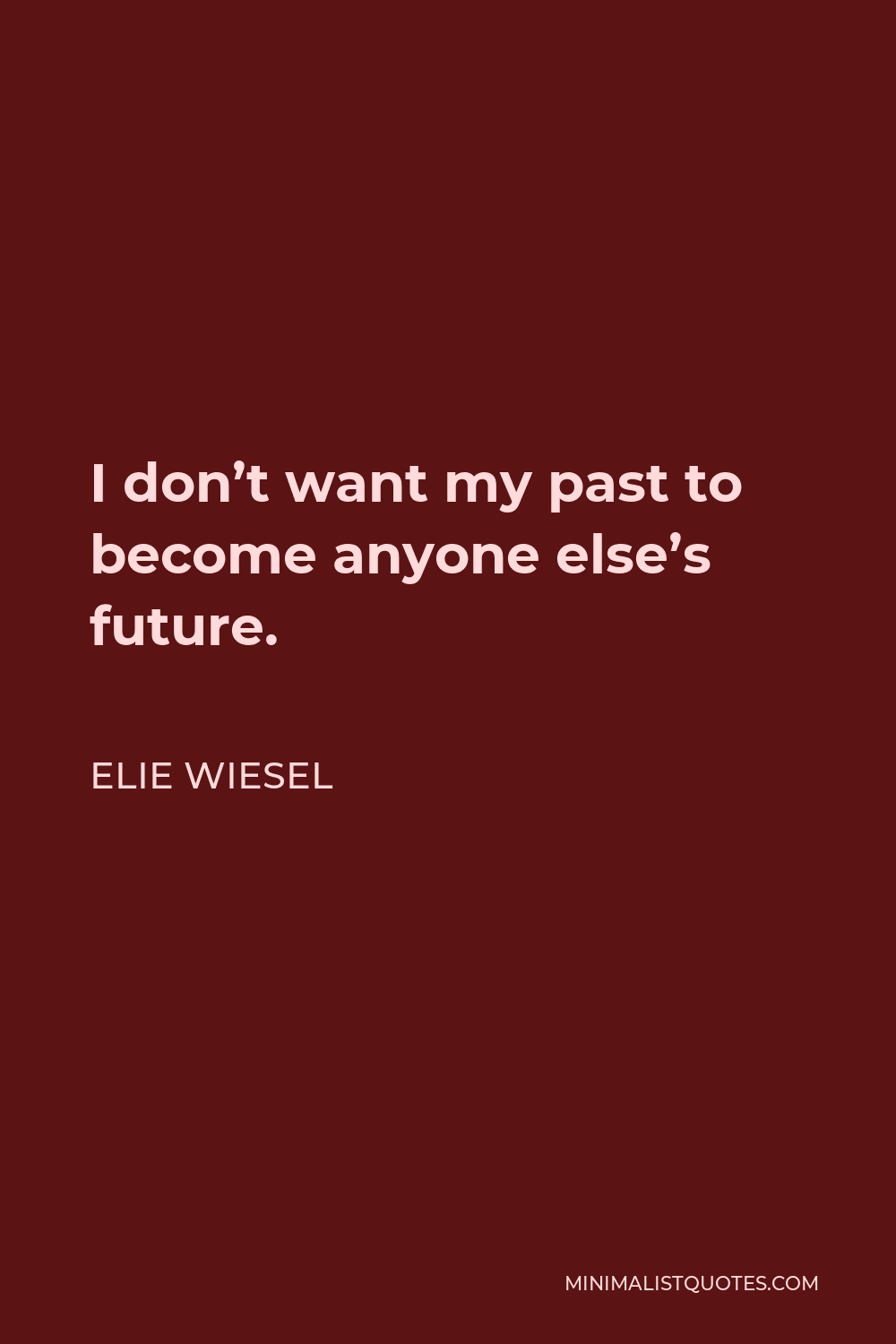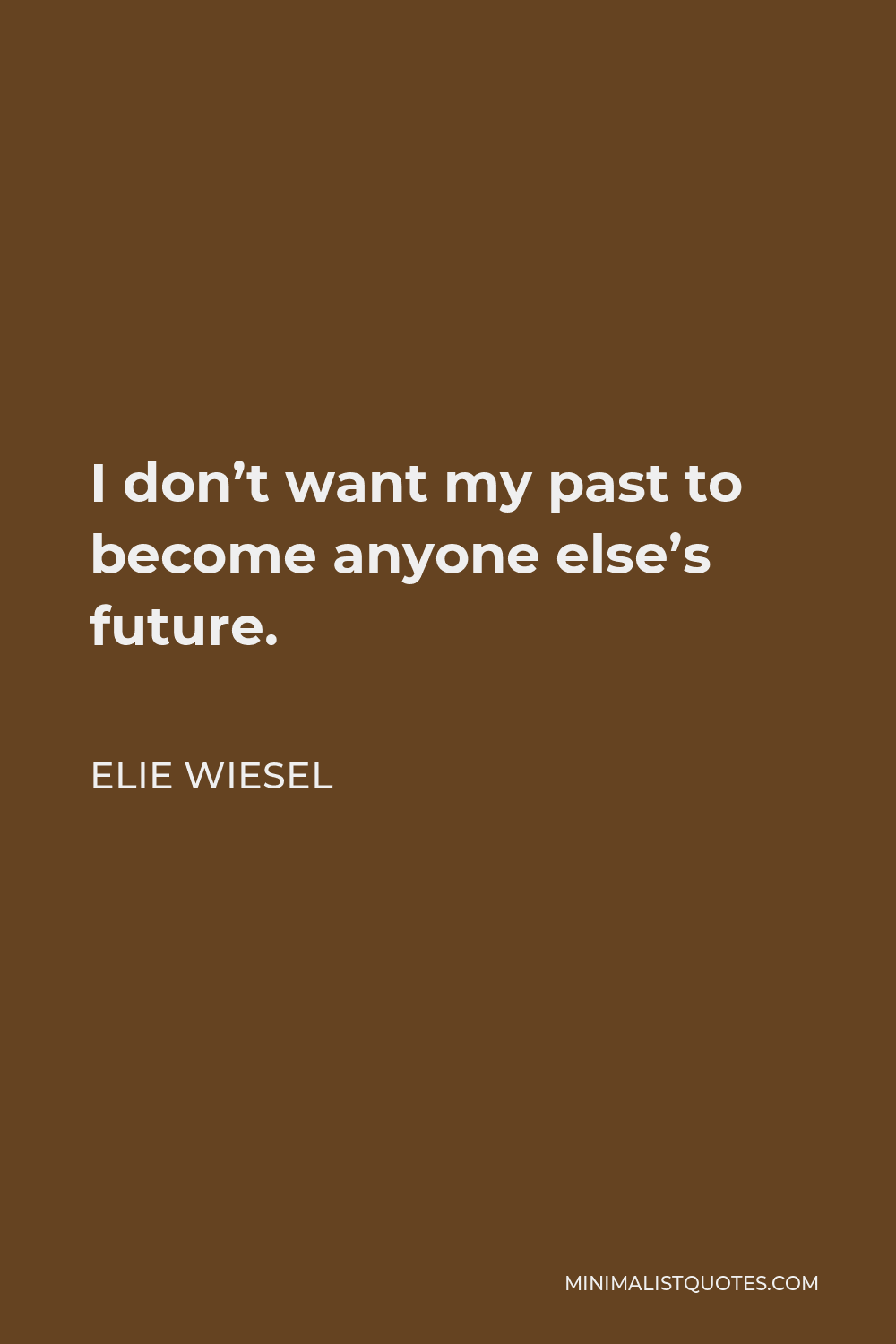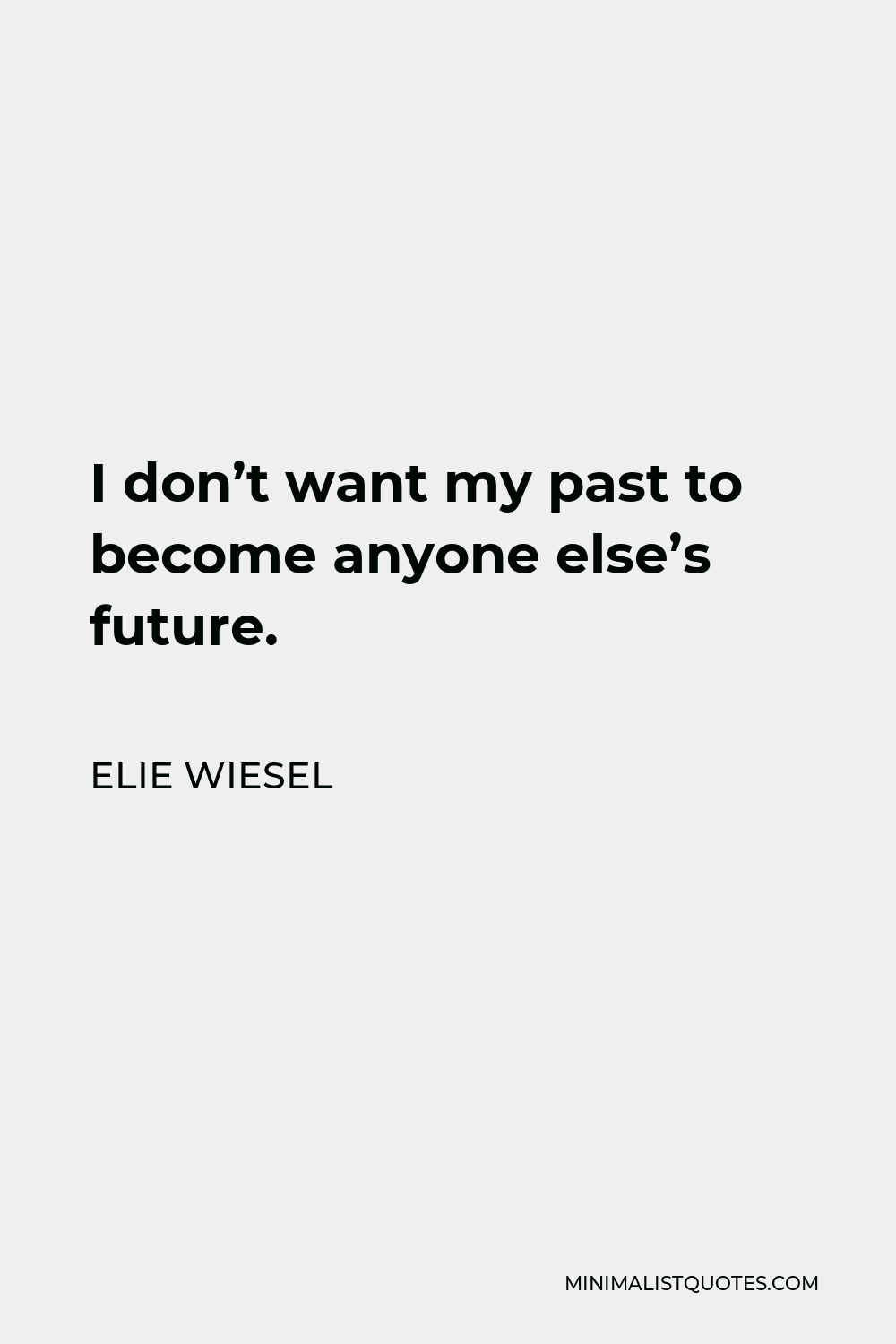No human being is illegal. That is a contradiction in terms. Human beings can be beautiful or more beautiful, they can be fat or skinny, they can be right or wrong, but illegal? How can a human being be illegal?
ELIE WIESELI don’t want my past to become anyone else’s future.
More Elie Wiesel Quotes
-





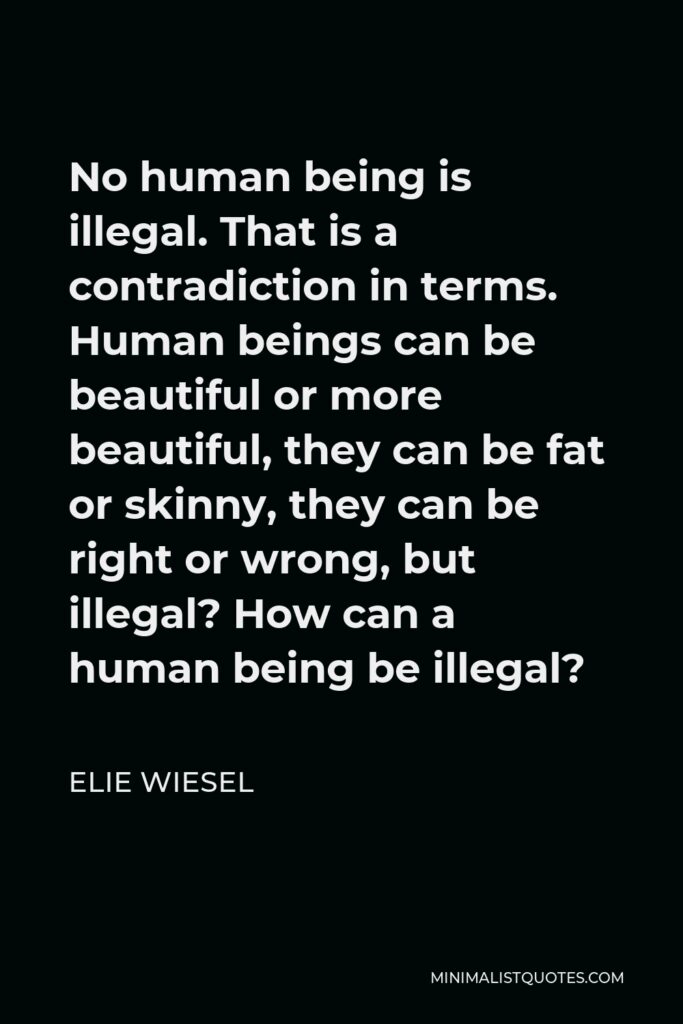

-





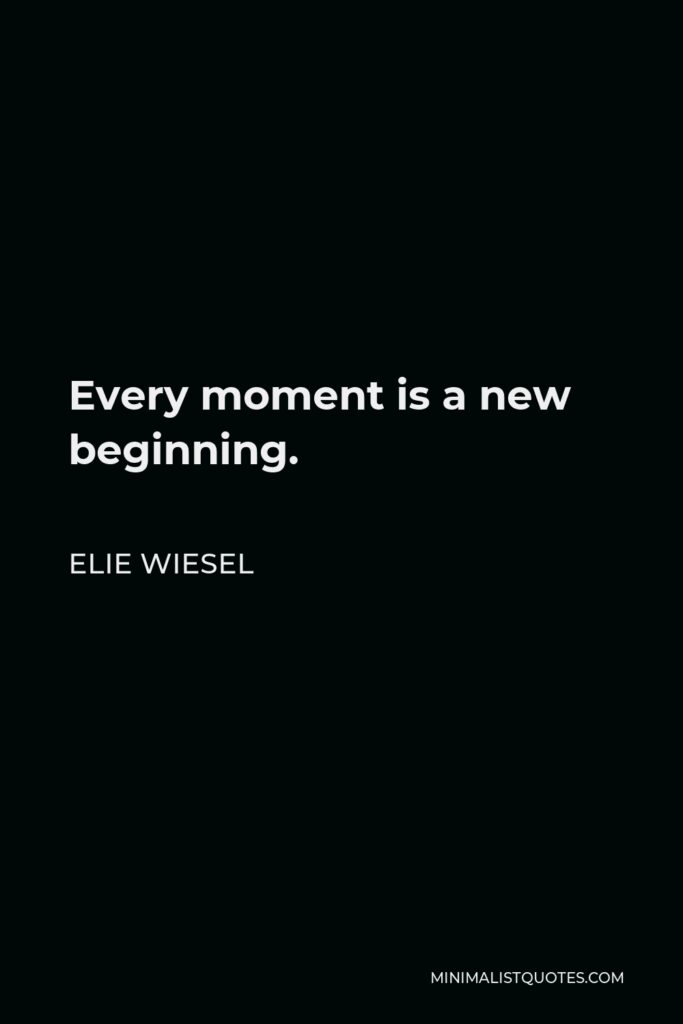

Every moment is a new beginning.
ELIE WIESEL -





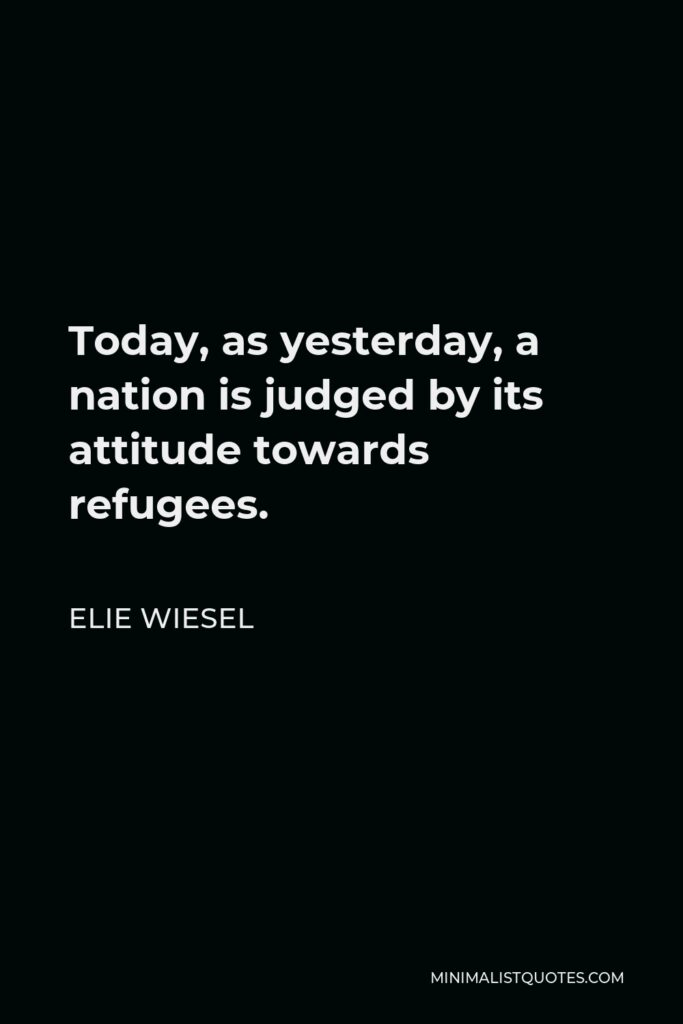

Today, as yesterday, a nation is judged by its attitude towards refugees.
ELIE WIESEL -





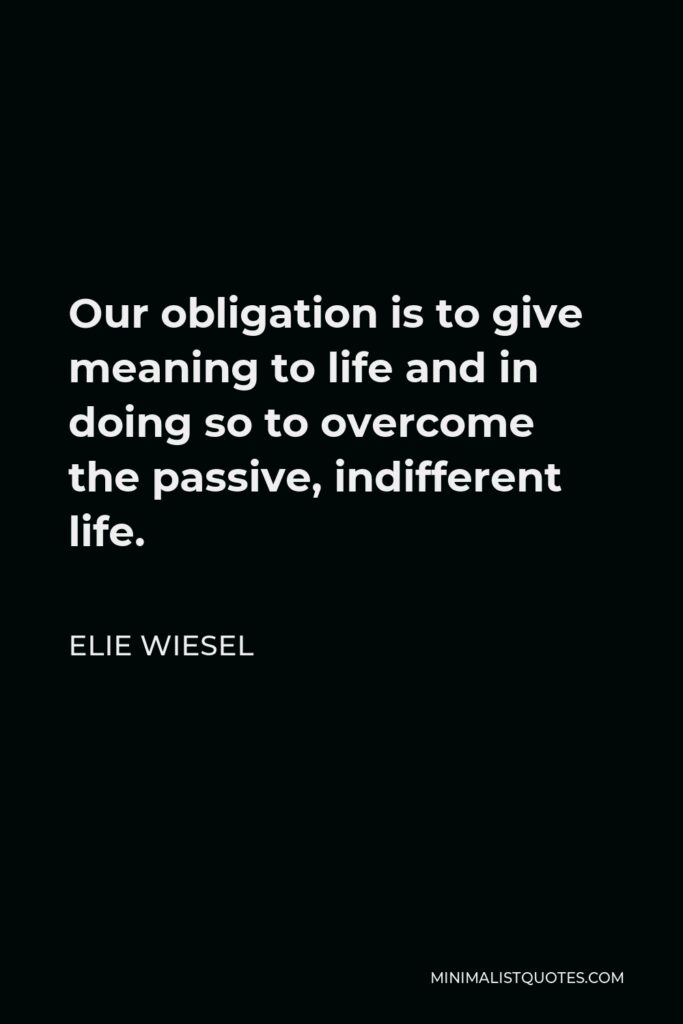

Our obligation is to give meaning to life and in doing so to overcome the passive, indifferent life.
ELIE WIESEL -







Every Jew, somewhere in his being, should set apart a zone of hate – healthy virile hate – for what the German personifies and for what persists in the German.
ELIE WIESEL -







Anything you want to say about God you better make sure you can say in front of a pit of burning babies.
ELIE WIESEL -





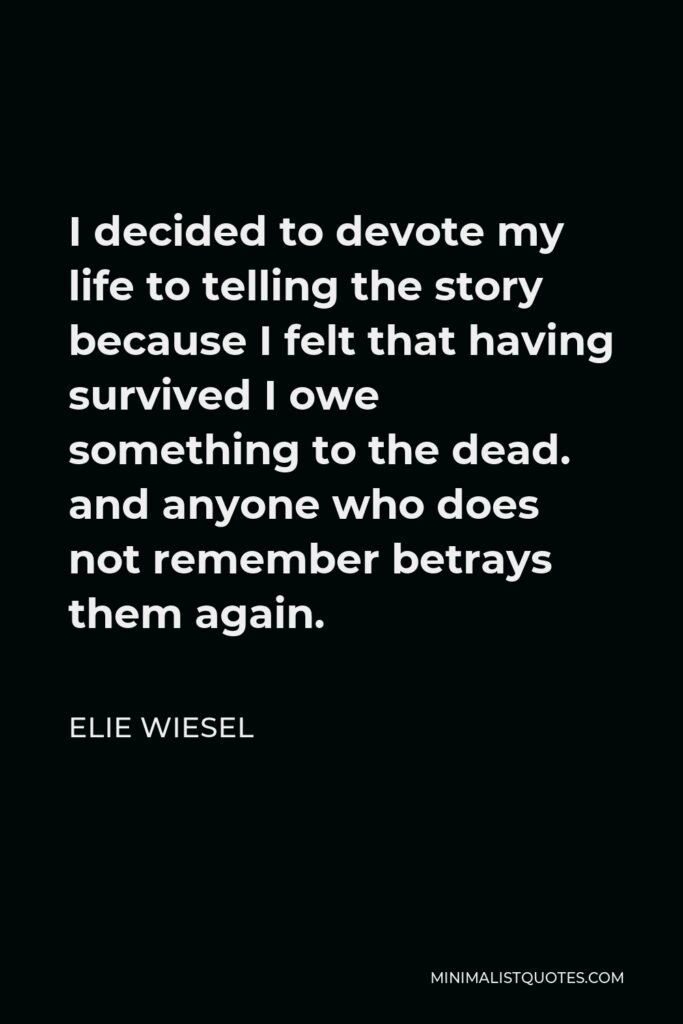

I decided to devote my life to telling the story because I felt that having survived I owe something to the dead. and anyone who does not remember betrays them again.
ELIE WIESEL -







Think higher, feel deeper.
ELIE WIESEL -





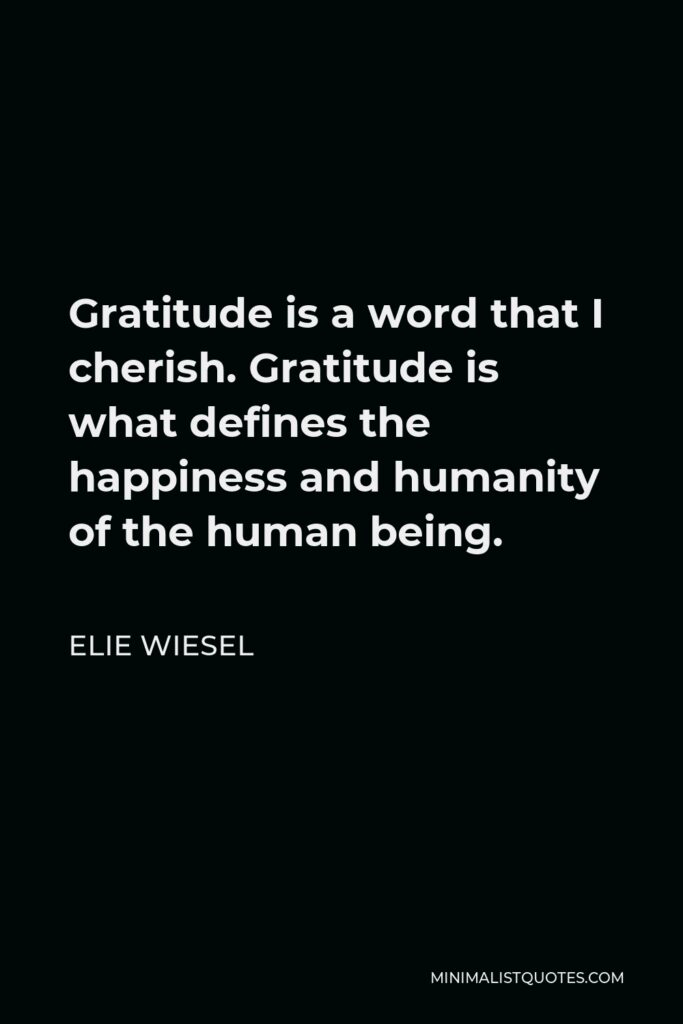

Gratitude is a word that I cherish. Gratitude is what defines the happiness and humanity of the human being.
ELIE WIESEL -





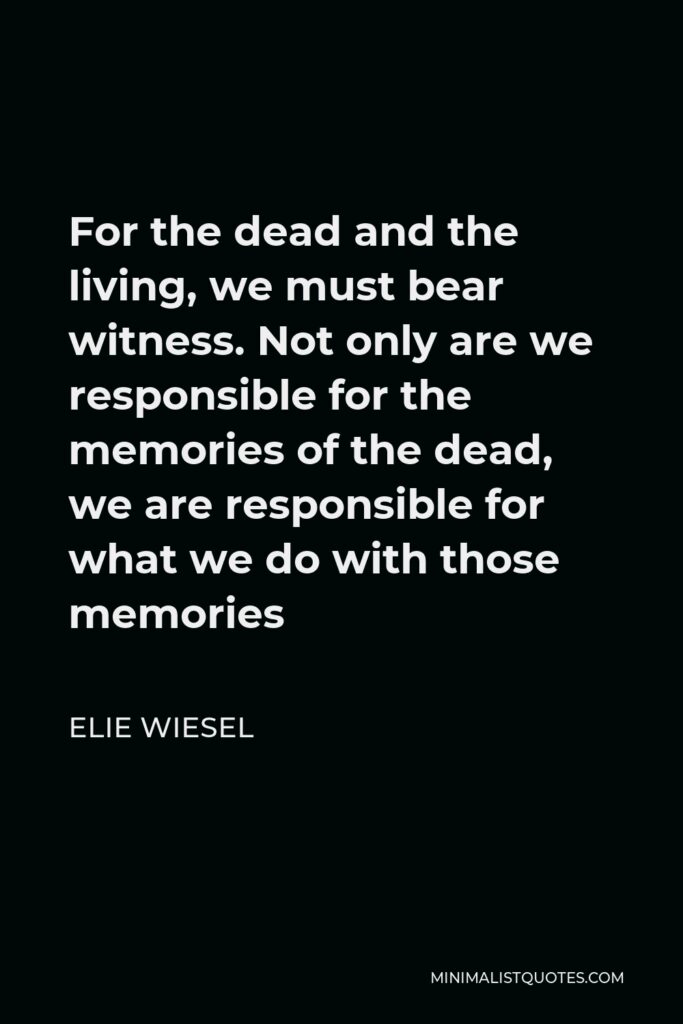

For the dead and the living, we must bear witness. Not only are we responsible for the memories of the dead, we are responsible for what we do with those memories
ELIE WIESEL -





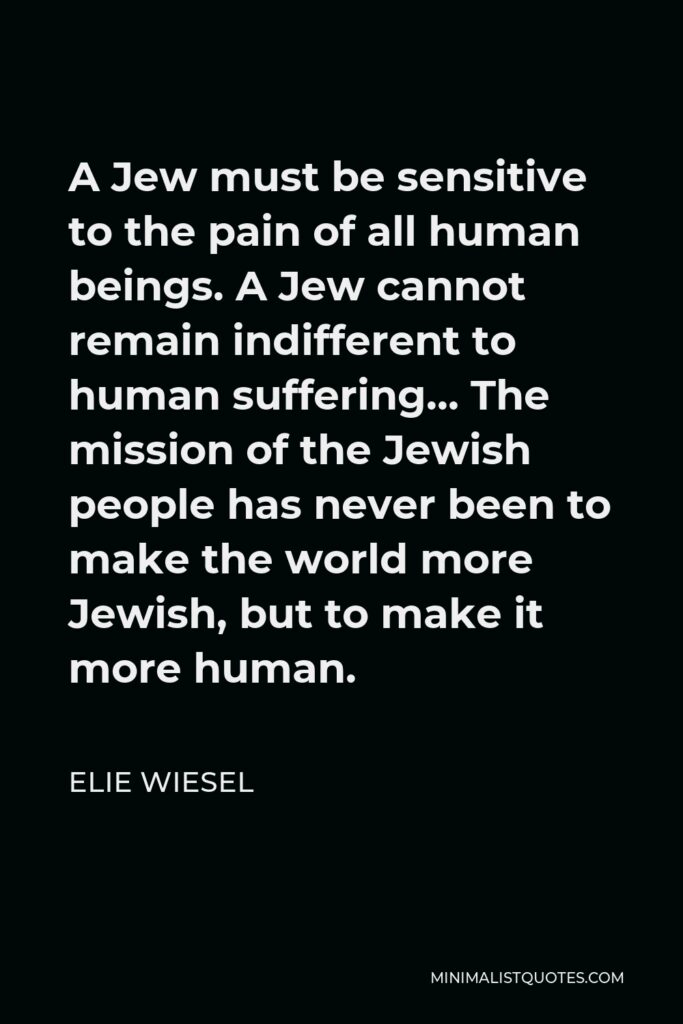

A Jew must be sensitive to the pain of all human beings. A Jew cannot remain indifferent to human suffering… The mission of the Jewish people has never been to make the world more Jewish, but to make it more human.
ELIE WIESEL -





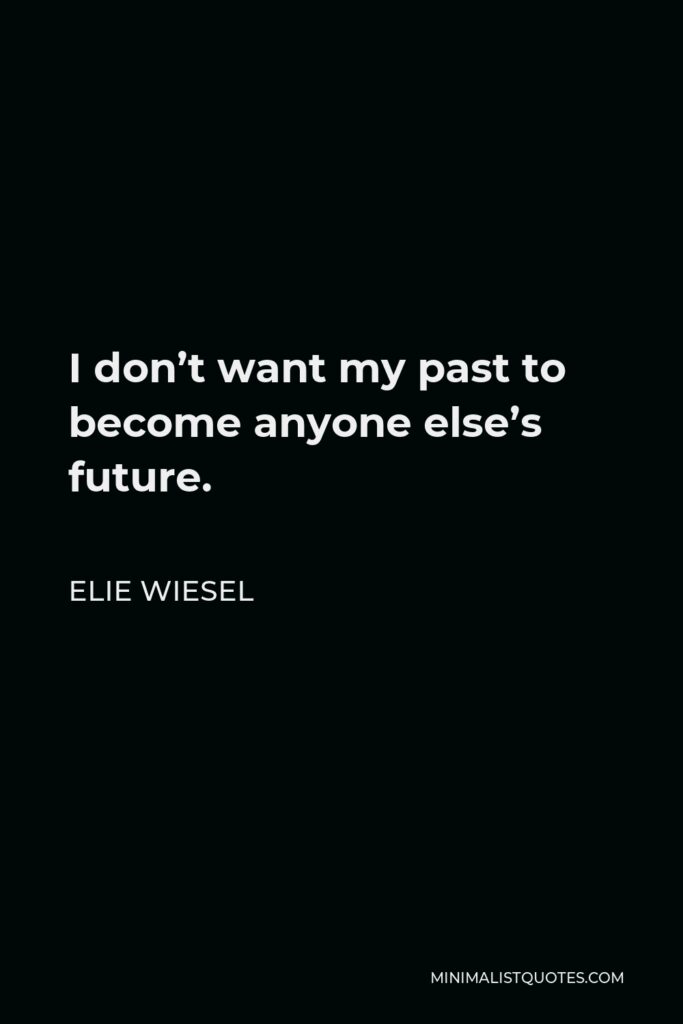

I don’t want my past to become anyone else’s future.
ELIE WIESEL -





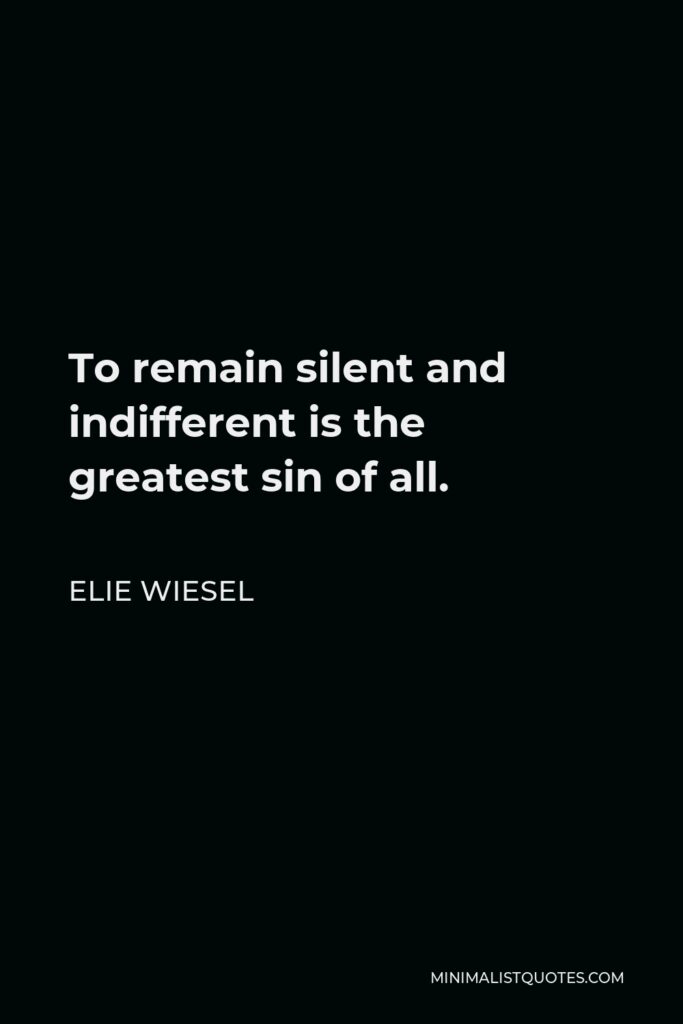

To remain silent and indifferent is the greatest sin of all.
ELIE WIESEL -





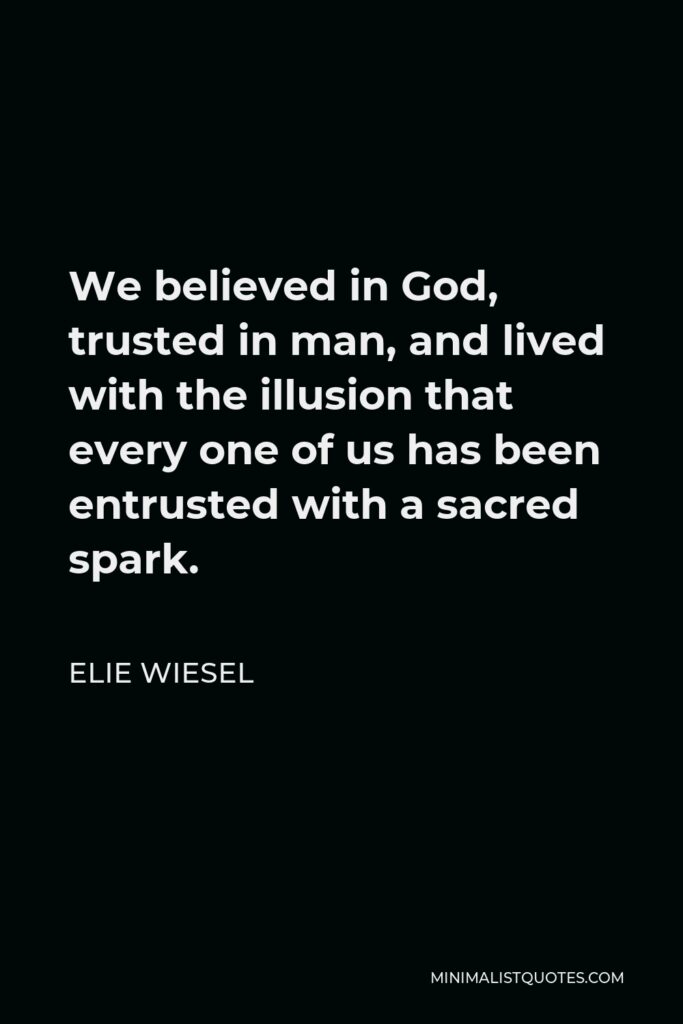

We believed in God, trusted in man, and lived with the illusion that every one of us has been entrusted with a sacred spark.
ELIE WIESEL -





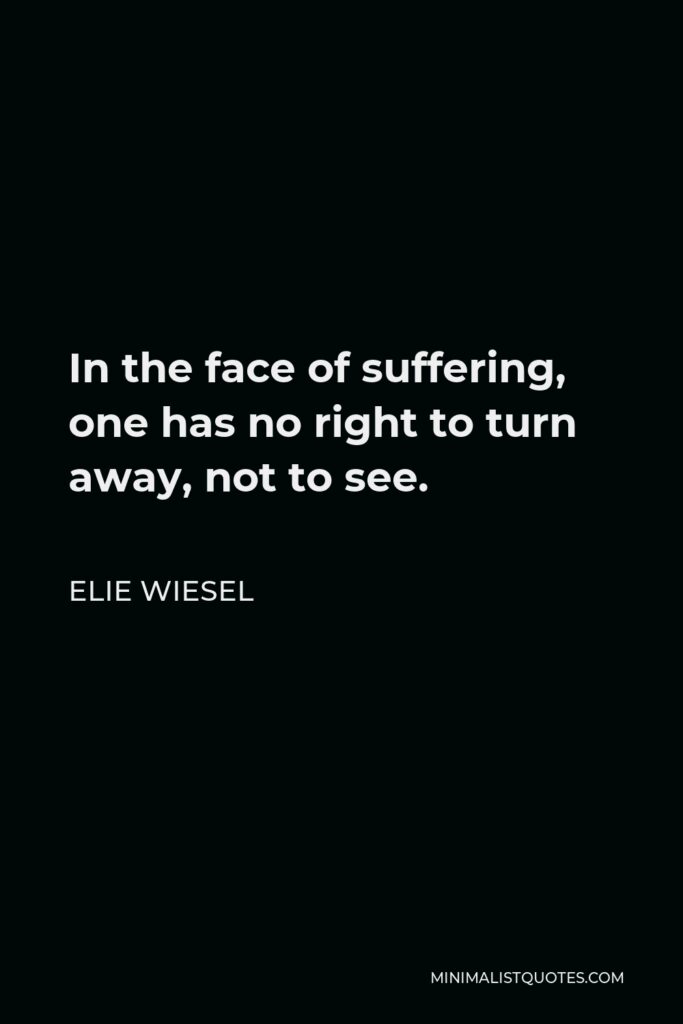

In the face of suffering, one has no right to turn away, not to see.
ELIE WIESEL -







Human beings should be held accountable. Leave God alone. He has enough problems.
ELIE WIESEL

